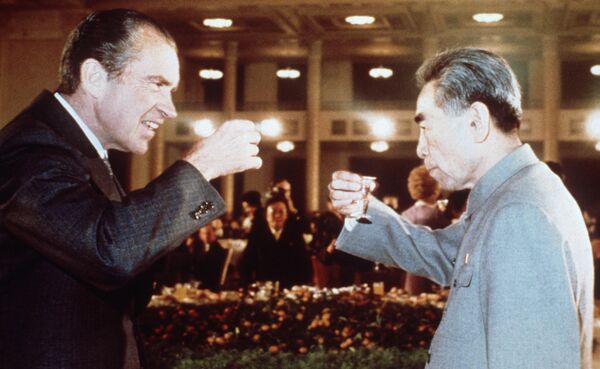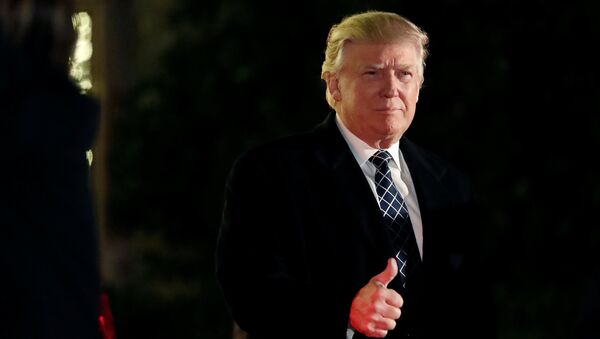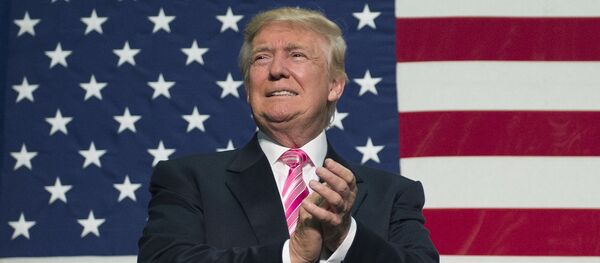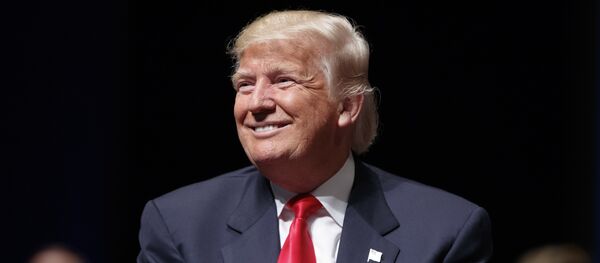It seems that US President-elect Donald Trump is going to play a role similar to that of Richard Nixon while maintaining relations with Russia and China, Brazilian journalist Jaime Spitzcovsky believes.
"Back in the 1970s, during the Cold War, the United States decided to end ideological hostilities [with China] and strike a compromise with the regime of Mao Zedong in order to isolate its longstanding enemy — the Soviet Union," Spitzcovsky noted in his article for Folha De S.Paulo.
"In recent decades, the Washington-Moscow-Beijing triangle played a decisive role in the struggle for world dominance. All three countries are still major [geopolitical] actors, but the circumstances which determine interaction between them, are changing," Spitzcovsky pointed out.
The journalist recalled that Nixon managed to drive a wedge between China and the USSR. According to Spitzcovsky, then US Secretary of State Henry Kissinger was the mastermind behind Washington's charm offensive against Beijing.
"Nixon's visit to China in 1972 was an earth-shattering geo-political event that transformed global diplomacy," Tom McGregor, Commentator and Editor at China Network Television (CNTV) noted in an interview with Sputnik last week.
"China opened its doors to the West and after Mao's [Zedong] death, Beijing has embarked on free market reforms and opening up policy," he highlighted.

In contrast, Trump has signaled that he does not consider Russia the US' 'number one enemy' while shifting his focus to China, Spitzcovsky stressed, adding that in the eyes of the US President-elect Beijing poses a serious challenge to the US.
Indeed, on Tuesday Foreign Policy magazine published a leaked memo outlining Trump's "top defense priorities." Incredible as it may seem, the memo makes no mention of Russia.
"Besides placing an emphasis on budgetary issues, 'force strength,' and counterterrorism in Iraq and Syria, the memo noted other briefings between the Defense Department and the Trump transition team on China and North Korea. But Russia was not mentioned," the media outlet reported.
Remarkably, in June 2015, Donald Trump highlighted in his interview on The O'Reilly Factor: "You can't have everybody hating you. The whole world hates us. One of the things that I heard for years and years, never drive Russia and China together, and Obama has done that."
Spitzcovsky noted that the US President-elect has already begun to "tease the Dragon" by his controversial remarks on US-Taiwanese relations and the "One China" policy.
According to the Brazilian journalist, Terry Branstad, appointed by Trump as US ambassador to China, will have to take on the role of a "firefighter" to smooth over tensions between Washington and Beijing.
The question then arises whether Moscow will go by the rules set by Trump and follow in Mao's footsteps. However, according to Petr Akopov of Vzglyad, it is highly unlikely, given Russo-Chinese mutual geopolitical interests in Eurasia.





